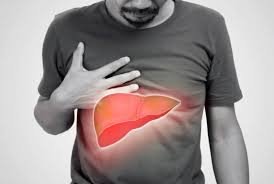A recent publication by The Lancet has made mention of a troubling trend, stating that nearly 60% of liver cancer cases across the globe are tied to preventable factors, with obesity as one of the driven cases seeing a rapid rise.
The study, released on July 29, estimates that more than 60% of liver cancer diagnoses could be prevented by controlling key issues such as viral hepatitis, heavy alcohol use, and metabolic dysfunction associated steatotic liver disease (MASLD); a condition linked to excess fat building up in the liver.
If no urgent action is taken to tackle this, yearly new cases of liver cancer could almost double by 2050, approximately reaching 1.52 million, while deaths related to this disease may increase from 760,000 to 1.37 million within the same time frame, which is very risky and pose serious harm.
This challenge is particularly pressing in Africa due to various conditions, where the number of liver cancer cases is expected to climb steeply by 2050.
According to the Lancet Commission on liver cancer, MASLD, especially its advanced form, metabolic dysfunction-associated steatohepatitis (MASH), is now the fastest-growing cause of liver cancer and is projected to rise by 35% by 2050.
Professor Hashem El-Serag, a hepatologist at Baylor College of Medicine and one of the report’s lead authors, emphasized that liver cancer often suffers from poor public perception and is not being given the attention it deserves.
Soaring obesity levels in the United States, Europe, and parts of Asia are contributing to this surge, with projections indicating that over 55% of adults in the U.S. will be affected by MASLD by 2040.
Africa is facing a similar reality as consumption of processed sugars and unhealthy dietary habits become increasingly widespread.






